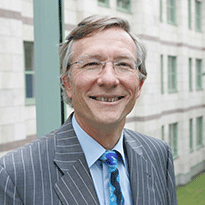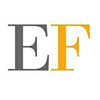Prof Tarrach welcome essay
Prof Rolf Tarrach, President, European Universities Association (EUA)
"Women’s share of PhDs, researchers, full professors and university rectors is in Europe very roughly 50%, 30%, 20% and 10% respectively. With our present level of knowledge it is very difficult, if not impossible to believe that this descending series of figures has a rational justification, that they reflect women´s increasing lack of merit, skills, competence or performance when the upper echelons of academia and research are approached. So they must be due to gender bias, be it conscious are unconscious. A 5% handicap in each submission of a research project leads to an 80% cumulated handicap after 30 submissions, a figure typical of a researcher’s life. This assumption, which is supported by some data, could easily explain the above series of percentages. But if we want to efficiently fight the bias we have to understand where it comes from.
In prehistoric times physical strength was one of the foremost conditions for successful survival. Physical strength leads to fight, violence, war, submission, hierarchy, a way of eventually organizing society. Some will say that it has served us well, some will say that a more peaceful society might have been a better choice, but the truth is that being a counterfactual situation we just cannot know. But what we know is that physical strength has put women in a disadvantaged situation. This is seen even today, when strength is not a relevant factor for success anymore, in our modern advanced societies and much more so in the others, where women are still in a clear minority in all positions that really matter, that hold real power. Some people, some of them very learned, try to explain this situation of women as a consequence of lesser intellectual or cognitive capabilities, sometimes even giving pseudoscientific reasons for it. They remind me of a sentence of a Nobel Prize in Physics, “you have to be very learned to be that wrong”. Disentangling thousands of years of interplay of nature and nurture in the development of women and men in our civilisations is sheer impossible with the scientific data we have today at our disposal, and might well be impossible in any foreseeable future, so that the most reasonable scientific assumption is the one of basic equality of capabilities, which does not mean that men and women are equally endowed for all and sundry activities.
The situation of women in our western societies has improved a lot in recent times. It is only a few generations ago that in many European countries women could not vote, could not open a bank account on their own, could not inherit or bequeath, could not do many things men could do, so that some believe that this progress in putting women on equal footing with men has been substantial and will reach its final and satisfactory goal in a few generations. Others believe that it is too slow, that it is flattening off too quickly for really reaching the asymptote of man-woman equality of opportunities and realizations. Again, this is a subject of opinion, too difficult for a serious and solid scientific and critical analysis that would allow a relatively safe forecast, so that ideology mainly determines our opinion. This is in fact the drama of this whole subject, that being so difficult to be analysed by solid scientific methods it is often dominated by ideology-laden approaches. It would however seem convincing, hopefully to everybody, that we should go on making efforts, wherever and whenever we can, for making this goal of fair treatment as soon as possible a reality.
The great monotheistic religions still play a major role in European and American societies, and it might well be that the increasingly swift developments in biotechnology, like gene editing, in nanotechnology, like the development of nano-robots, in artificial intelligence, like deep machine learning, and in countless other fields of knowledge will make the world so difficult to understand for many, that they will continue seeking refuge and consolation in religions, beyond the venerable old reason of accepting death more easily. So religions are very likely here to stay in important parts of our societies.
But our religions are notoriously and deeply female-phobic, although some are less so than in previous times. About Judaism, arguably not the most extreme religion, Christopher Hitchens writes in his little book “Mortality”, written as a farewell shortly before his death, “Thus the Jewish male begins each day by thanking god for not making him into a woman (or a Gentile), while the Jewish woman contents herself with thanking the almighty for creating her ‘as she is’”. The old Christian debate on how many days the soul enters the male embryo earlier than the female, although considered by most today as patently ludicrous, shows the same historic bias against women. I do not consider it necessary to give an example of unfair treatment of women by Islam. In any case, women cannot be Popes, cardinals, rabbis, imams or califs.
Women are legally, in most if not all of our Western societies equal to men, but the reality is still different, in spite of the fact that physical strength does not play any role anymore. So the problem lies in our culture, our upbringing, our traditions, and in the scaffold of all this, our religions. One cannot imagine, even in one´s wildest dreams, a society which truly offers a genuinely level playing to women, when at the same time religions, as they still are today, play a major role in this society, as they still do today. Since the relevance of religions is very likely here to stay, the only possibility is to push them to interpret their texts in such a way that women be considered exactly as men are, in fact by just never mentioning anywhere the word “woman” as they do in distinction to “man”, only es equal to man. If the great monotheistic religions are able to do that, great, if not, they are incompatible with one of the main tenets of our democratic systems, the equality of man and woman, and democracies should take note and act in consequence.
Once gender-fairness is achieved we will be able to turn to other, objectively more difficult issues, which, incidentally, might turn out to be easier to be handled in this new, less aggressive, more inclusive society.
Rolf Tarrach
President, EUA
26/08/16
Prof Tarrach was a member of the Science Leaders Panel which worked on the genSET project in 2009-2011. The Gender Summits were created as part of this project on the recommendations of their work. Rolf, along with other members of the panel, have been longstanding supporters of the Gender Summit mission.





